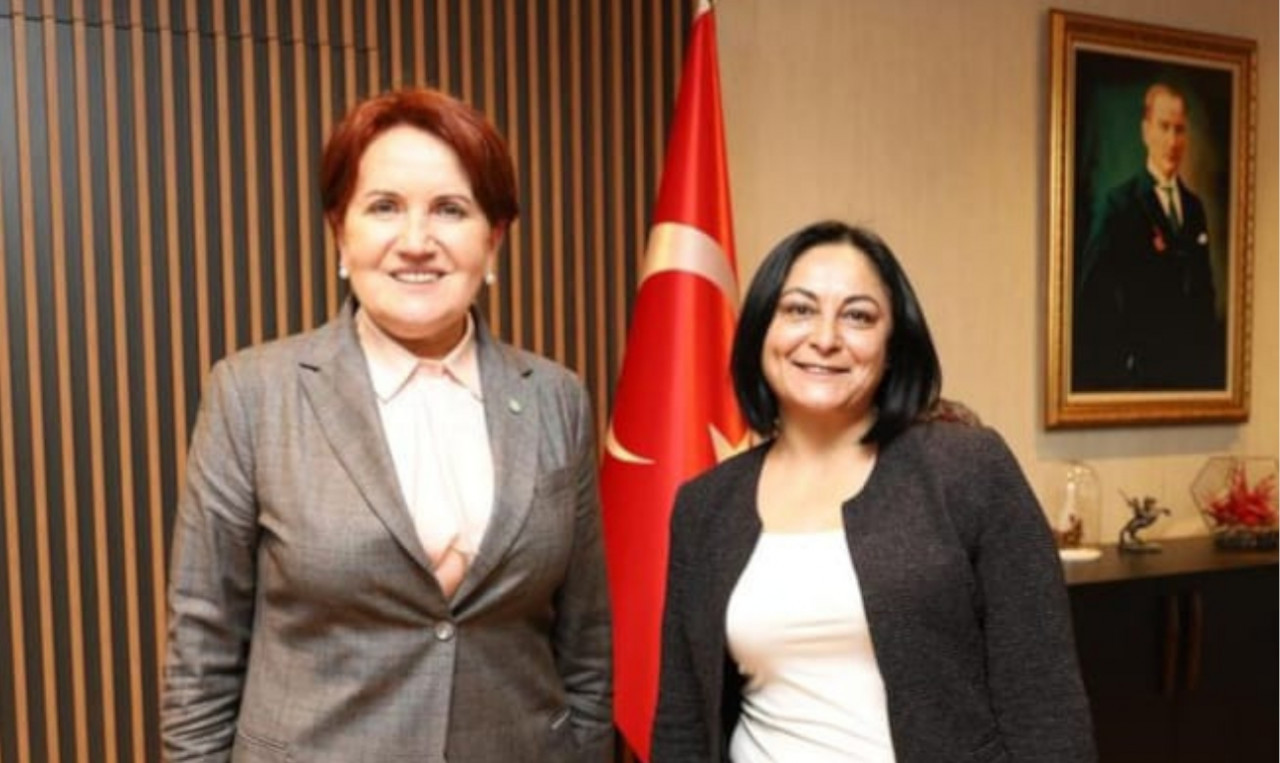İYİ Party leader: I was asked to step down as presidential candidate 15 days prior to 2018 elections
İYİ Party leader Meral Akşener has said that she was asked to step down as presidential candidate 15 days prior to the June 2018 elections -- presumably by officials of the Nation Alliance (“Millet İttifakı”). “Fifteen days left to the elections, I was phoned and asked to 'step down.' I was told, 'We are winning in the first round, and you are dropping the ball on us,'” she said.
Nergis Demirkaya / DUVAR
İYİ (Good) Party leader Meral Akşener has said that she was asked to step down as presidential candidate 15 days prior to the June 2018 elections.
Akşener made the comments when she was asked by a group of reporters how the opposition's candidate for the next presidential election will be decided, and whether the Nation Alliance (“Millet İttifakı”) will name one united candidate against the People's Alliance (“Cumhur İttifakı”).
The Nation Alliance consists of the main opposition Republican People's Party (CHP), İYİ Party, Felicity Party (SP) and the Democratic Party (DP), whereas the People's Alliance consists of the ruling Justice and Development Party (AKP) and Nationalist Movement Party (MHP).

“Our [Nation] alliance is a collaboration. We have different institutional identities. We do not show off or get offended to each other. When there are misunderstandings, we talk with each other in a candid way. Let's say we go to elections. First, we will see which political parties will be in the Nation Alliance,” Akşener told journalists at the party headquarters on Jan. 7.
“I am saying 'I will not put Turkey's future in a difficult spot with personal goals.' I have taken a very important lesson from June 24 [2018] elections. There was a great excitement with sayings, 'We are winning in the first round.' What happened? Fifteen days left to the elections, I was phoned and asked to 'step down' [as presidential candidate]. I was told, 'We are winning in the first round, and you are dropping the ball on us.' Did I open my mouth? You have not heard even one sentence from me to put [alliance] in difficulty,” she said.
Turkey held presidential and parliamentary elections on June 24, 2018, with a second-round run-off election planned for the presidency on July 8 if no candidate had secured more than 50 percent of the vote in the first round.
President Recep Tayyip Erdoğan, as chair of the ruling AKP, secured a new mandate in the first round by winning more than 50 percent of the votes.
There were four presidential candidates on the opposition: Muharrem İnce from the CHP and Selahattin Demirtaş from the Peoples’ Democratic Party (HDP), Akşener from İYİ Party, and Temel Karamollaoğlu from the Felicity Party.
There were widespread speculations that the opposition would put forward one united candidate to challenge Erdoğan for the presidency, but the parties failed to come to an agreement, which pushed each of them to name their own separate candidate.
İnce received 30.7 percent of the votes, although it was thought that he could go higher as his final rallies had drawn millions.
Akşener - nicknamed the "she-wolf" and once seen as the biggest threat to the president – similarly polled lower than expected and than what was needed for a strong united front against Erdoğan.

 Opposition contemplating whether to field joint candidate to run against ErdoğanPolitics
Opposition contemplating whether to field joint candidate to run against ErdoğanPolitics